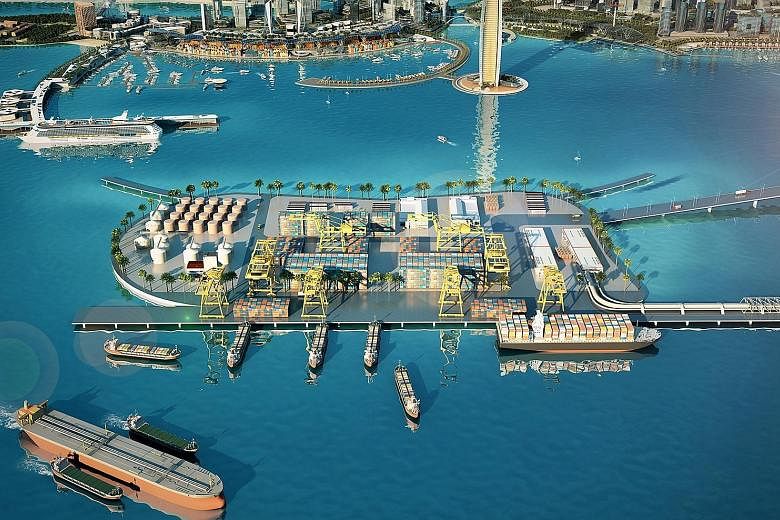Malaysia's political opposition is pouring scorn over China's investments, branding the deals as detrimental to local businesses. But local Malaysian firms, in particular from the Chinese community, are divided over China's multibillion-dollar investments, with some fearing that local companies would not be able to compete with Chinese giants.
Mainland Chinese companies, both private enterprises and state-owned firms, had plans to pump over US$35 billion (S$50 billion) into Malaysia last year alone, a more than seven-fold jump from 2015, according to estimates by The Straits Times.
Prime Minister Najib Razak has been accused by his critics of "selling out" the country's assets after inking investments and soft loans worth RM144 billion (S$46 billion) with China last November. He has repeatedly defended the deals, labelling the attacks as a scare tactic by the opposition.
Leading the critics are former premier Mahathir Mohamad and former deputy prime minister Muhyiddin Yassin, who said the huge influx of money might force Malaysia to politically lean more towards Beijing, and that the Chinese firms could get sweetheart deals such as allowing them to bring in their own material, technology and workers.
But the view from the ground is mixed.
On one side are supporters of the Chinese funds. The Associated Chinese Chambers of Commerce and Industry of Malaysia issued a statement last week to defend Chinese investors. The group argued that Chinese deals have been beneficial to both countries. "Some Malaysian companies are even working with Chinese investors to set up or expand production bases, incubation centres, high-tech enterprises and other businesses," the group's president Ter Leong Yap said.
Opposition MP Liew Chin Tong said Malaysia should exercise caution in selecting the deals. "The relationship could be a mutually beneficial one of collaboration instead and not as one-sided as it is now," Mr Liew wrote in his statement.
Some critics point to the proposed project to build a RM43 billion port in Malacca and a RM55 billion rail line to link Kuala Lumpur to east coast states. One concern is whether such mega-projects are needed; another is whether Malaysia can financially afford them.
Yet another concern is whether these giant projects would create many local jobs and a sharing of technology. "There's a real worry across sectors with regard to China's entry into the Malaysian market," said analyst Amir Fareed Rahim at the KRA Group consultants. "The main complaint is that China's companies would come in and do the projects themselves without giving a slice of the pie to local firms."
Industry players and analysts say some of the backlash comes from the fear that local companies would be unable to stand tall against their bigger counterparts.
"These are all China's big boys. You can't compete with the sheer scale, size and capabilities of the Chinese," said Mr Amir.
Despite these concerns, analysts say a positive outcome can be created with proper planning by both the government and Malaysia private sector. "Competition among businesses is always good. Now it'll be about efficiency, and the fittest would survive," said director of think-tank Socio-economic Research Centre Lee Heng Guie.

